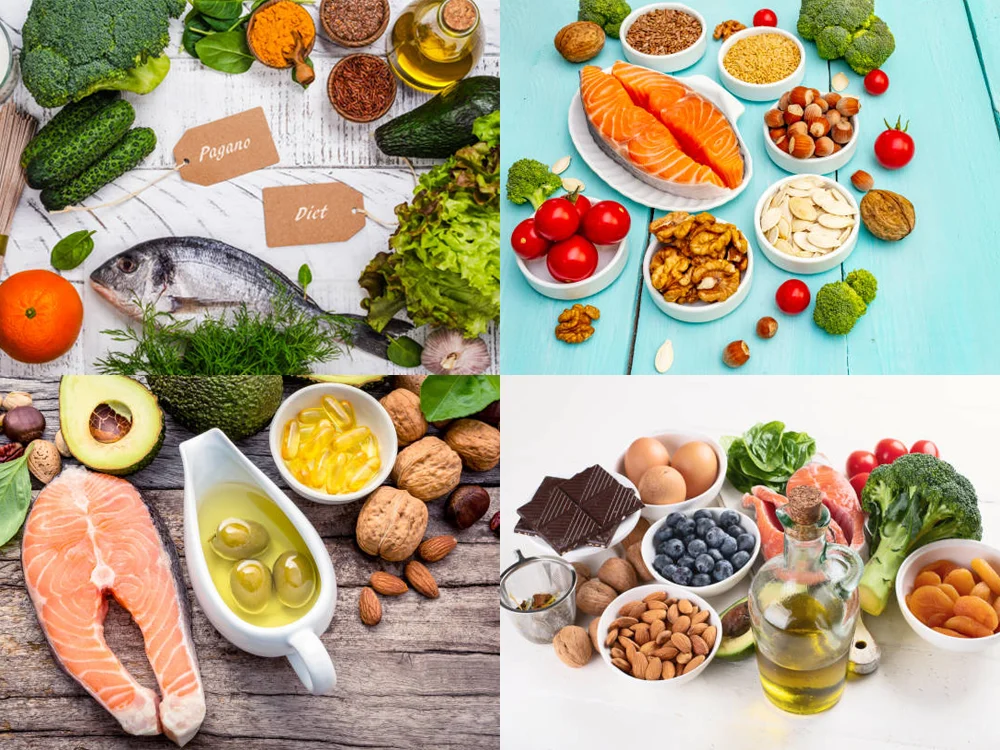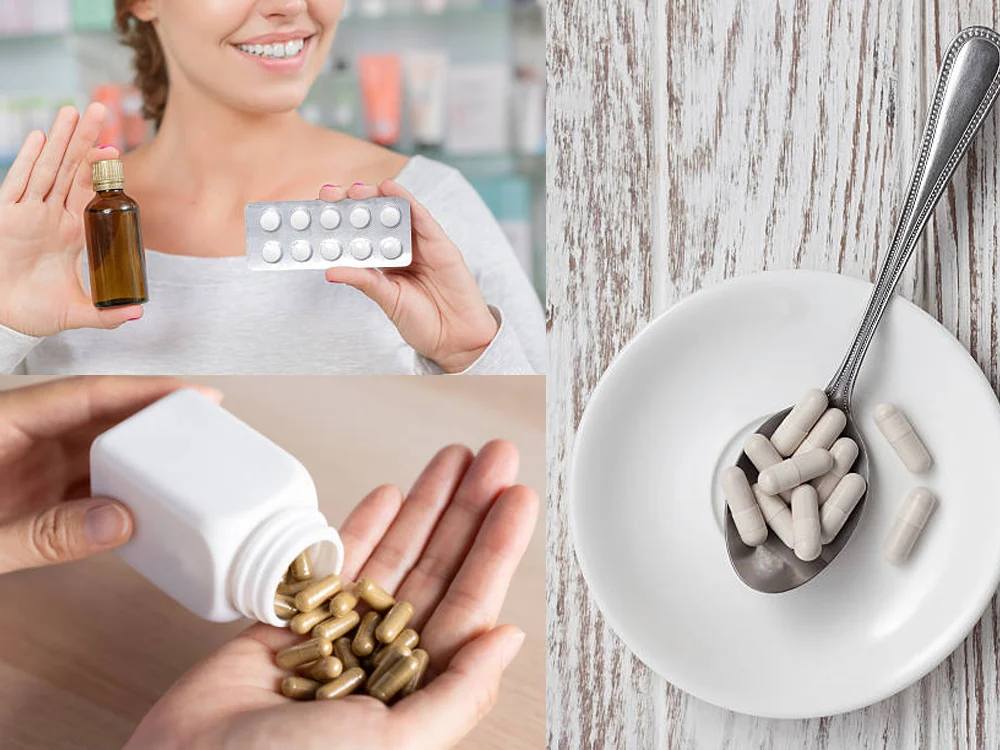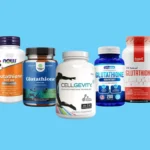Unlocking the Secrets to Enhanced Health and Vitality
There are multiple ways to naturally increase your glutathione levels in the body! Welcome to our comprehensive guide, we will explore the importance of glutathione as a potent antioxidant, how it is produced in the body, factors that can deplete its levels, and most importantly, dietary changes you can make to boost your glutathione levels naturally.
Glutathione plays a crucial role in protecting our cells from oxidative damage and maintaining overall health [1][2]. By understanding how to enhance your body’s glutathione levels, you can promote optimal well-being and enjoy the benefits of increased antioxidant protection.
So, let’s dive into the fascinating world of glutathione and discover how you can naturally increase its levels in your body!
Importance of Glutathione as a Potent Antioxidant
Glutathione is often referred to as the “master antioxidant” due to its powerful role in neutralizing harmful free radicals [1]. These free radicals are unstable molecules that can cause oxidative stress, leading to cellular damage, premature aging, and increased risk of chronic diseases. By increasing your glutathione levels, you can protect your body’s defense against oxidative stress and support your overall health and well-being.
How Glutathione is Produced in the Body
Glutathione is naturally synthesized in our cells from three amino acids: cysteine, glutamate, and glycine. These amino acids work together in a complex process to create this essential antioxidant [3]. However, various factors can disrupt the production and utilization of glutathione, leading to depleted levels in the body.
The first step in glutathione production is the synthesis of cysteine. Cysteine is made from the amino acid methionine, which is obtained from the diet. Once cysteine is available, it is combined with glycine and glutamic acid to form glutathione [3].
Glutathione production is a complex process that requires the participation of a number of enzymes. These enzymes are responsible for catalyzing the chemical reactions that are necessary to produce glutathione [4].
Factors That Can Deplete Glutathione Levels
Several factors can contribute to the reduction of glutathione levels in the body. These include:
- Environmental toxins: Exposure to pollutants, heavy metals, and chemicals can increase oxidative stress and deplete glutathione levels [5].
- Poor diet: Consuming a diet lacking in essential nutrients, such as sulfur, selenium, and vitamin C, can hinder the production and function of glutathione [6].
- Chronic stress: Prolonged stress can impair glutathione synthesis and utilization, making it crucial to manage stress levels effectively [7].
- Aging: As we age, our bodies naturally produce less glutathione, making it important to take proactive steps to maintain optimal levels [2].
Now that we understand the significance of glutathione and the factors that can impact its levels, and there are a number of things that you can do to increase your glutathione levels.
let’s start by explore the dietary changes you can implement to naturally increase your glutathione levels.
Dietary Changes

1. Increase Intake of Sulfur-Rich Foods
Sulfur is an essential component for glutathione synthesis, making it vital to include sulfur-rich foods in your diet. Here are some examples of sulfur-rich foods and their benefits:
- Eggs: Eggs are not only a great source of protein but also contain sulfur compounds necessary for glutathione production. They are versatile and can be enjoyed in various dishes [6] [10].
- Garlic and Onions: These aromatic bulbs are not only known for their flavor but also for their high sulfur content. Incorporating garlic and onions into your meals can provide a flavorful boost to your glutathione levels [8].
- Cruciferous Vegetables: Broccoli, Brussels sprouts, cauliflower, cabbage, kale, and spinach are all excellent sources of sulfur. Including these nutritious vegetables in your diet can help support glutathione production and overall health [6].
- Mushrooms: Certain varieties of mushrooms, such as shiitake and maitake, contain compounds that enhance glutathione levels. Adding mushrooms to your meals can offer a delicious way to boost your antioxidant defense [6].
Research has shown that incorporating sulfur-rich foods into your diet can lead to increased glutathione levels and improved overall health. For example, research has demonstrated that garlic supplementation led to a remarkable increase in glutathione levels by 42% [2]. By incorporating sulfur-rich foods into your daily meals, you can naturally boost your glutathione levels and promote overall health.
2. Consume Food High in Vitamin C
Vitamin C plays a vital role in maintaining optimal glutathione levels in the body. Here are some food sources rich in vitamin C:
- Citrus Fruits: Oranges, lemons, and grapefruits are well-known sources of vitamin C. Enjoying a refreshing glass of orange juice or squeezing lemon over your meals can provide a natural vitamin C boost [6].
- Strawberries: These vibrant berries not only taste delicious but also contain a significant amount of vitamin C. Snack on fresh strawberries or incorporate them into smoothies and salads for a nutrient-packed treat [6].
- Tomatoes: Tomatoes are not only a versatile ingredient in various dishes but also a great source of vitamin C. Add them to your salads, sandwiches, or enjoy them as a base for a flavorful pasta sauce [6].
- Cruciferous Vegetables: In addition to their sulfur content, vegetables like broccoli and Brussels sprouts are also rich in vitamin C. These nutritional powerhouses can provide a double boost to your glutathione levels [6].
In a study involving 48 individuals with low levels of ascorbate, the daily intake of either 500 mg or 1000 mg of vitamin C over a period of 13 weeks resulted in an 18% increase in lymphocyte glutathione levels compared to a placebo. Additionally, in healthy adults who followed a vitamin C-restricted diet and received placebo supplementation initially, a six-week trial showed that taking 500 mg of L-ascorbate daily in weeks two and three, followed by 2000 mg daily in weeks four and five, led to an elevation of glutathione levels in red blood cells. Notably, the 500 mg dose demonstrated the most significant increase in glutathione levels [6]. By incorporating these vitamin C-rich foods into your daily diet, you can support glutathione production and enhance your body’s antioxidant defense [9].
3. Add Selenium-Rich Foods to Your Diet
Selenium is a vital cofactor for glutathione production, and including selenium-rich foods in your diet can help optimize your glutathione levels. Here are some examples:
- Brazil Nuts: These delicious nuts are one of the richest sources of selenium. Enjoy a handful of Brazil nuts as a snack or incorporate them into your favorite recipes for a selenium boost [10].
- Seafood: Tuna, salmon, oysters, and shrimp are excellent sources of selenium. Including these nutritious seafood options in your diet can contribute to your body’s selenium and glutathione levels [10].
- Whole Grains: Incorporating whole grains like brown rice, quinoa, and oats into your meals can provide a natural source of selenium. These wholesome grains offer a variety of health benefits along with supporting glutathione production [10].
By including selenium-rich foods in your diet, you can ensure your body has the necessary cofactor for glutathione synthesis [6].
Studies have demonstrated the positive impact of selenium supplementation on glutathione levels. For instance, research has shown that selenium supplementation significantly increased glutathione levels in individuals, improving their antioxidant capacity and overall health [6]. By ensuring an adequate intake of selenium-rich foods, you can naturally enhance your glutathione levels with the necessary cofactor for glutathione synthesis in the body and promote optimal well-being [10].
4. Eat Foods Naturally Rich in Glutathione
While dietary sources of glutathione itself may not directly increase its levels in the body, consuming foods naturally rich in glutathione can provide essential nutrients that support its production. Here are some examples:
- Avocados: These creamy fruits are not only delicious but also contain glutathione. Incorporate avocados into your meals or enjoy them as a spread on toast for a nutritious boost [6].
- Watermelon: This refreshing fruit contains small amounts of glutathione and is a great hydrating snack. Enjoy watermelon slices on hot summer days to stay refreshed and nourished [6].
- Papayas and Pineapples: These tropical fruits are not only packed with flavor but also contain glutathione. Enjoy them as a sweet treat or incorporate them into smoothies for a tropical twist [6].
- Yogurt and Kefir: Fermented dairy products like yogurt and kefir contain glutathione precursors that can support its production in the body. Enjoy these probiotic-rich foods as part of a balanced diet [26].
- Legumes and Plant-Based Proteins: Lentils, chickpeas, tofu, and tempeh are excellent plant-based sources of glutathione precursors. Including these nutritious options in your meals can provide a natural boost to your glutathione levels [27].
While dietary glutathione may have limited absorption, incorporating foods naturally rich in glutathione can still provide valuable nutrients that support its production in the body [1].
Supplements

5. Supplement With Whey Protein
Whey protein is not only an excellent source of high-quality protein but also a potent natural supplement for increasing your glutathione levels. Whey protein contains a significant amount of cysteine, which is a crucial amino acid required for glutathione production. Cysteine acts as a building block for glutathione synthesis, ensuring an ample supply of this vital antioxidant.
Several studies have demonstrated the effectiveness of whey protein in boosting glutathione levels. For example, a study published in the NLM found that supplementing with whey protein for ten weeks significantly increased glutathione levels in participants. This increase in glutathione remained elevated even after a 12-week period of discontinuing the supplementation. By incorporating whey protein into your diet, you can provide your body with the necessary cysteine to support glutathione production and enhance your overall well-being [11] [12].
6. N-Acetyl Cysteine (NAC)
N-Acetyl Cysteine, commonly known as NAC, is another powerful supplement that can naturally elevate your glutathione levels. NAC serves as a precursor to cysteine and effectively replenishes the cysteine stores in your body, promoting glutathione synthesis [6].
Not only does NAC supply the essential building blocks for glutathione production, but it also has a unique mode of operation. NAC directly boosts the activity of an enzyme called glutamate-cysteine ligase, which is responsible for synthesizing glutathione. By enhancing the enzyme’s activity, NAC optimizes glutathione production, leading to increased antioxidant protection and improved health.
Multiple studies have demonstrated the efficacy of NAC in raising glutathione levels. One study, published in the NLM, showed that NAC supplementation significantly increased glutathione levels in individuals with chronic obstructive pulmonary disease (COPD). The increase in glutathione persisted for up to four weeks after the supplementation period ended, highlighting the sustained benefits of NAC [25].
The antioxidant properties of NAC and its ability to supply cysteine for glutathione synthesis are known. It remains uncertain whether the impact of NAC on oxidative stress stems from its antioxidant properties or its promotion of glutathione synthesis [6].
7. Alpha-Lipoic Acid (ALA)
Alpha-Lipoic Acid, or ALA, is a natural compound that not only functions as a powerful antioxidant itself but also plays a crucial role in supporting glutathione production. ALA acts as a cofactor for an enzyme called glutathione reductase, which is responsible for recycling oxidized glutathione back into its active form.
By assisting in glutathione recycling, ALA ensures that your body maintains an optimal supply of this vital antioxidant. Moreover, ALA exhibits its antioxidant properties by neutralizing harmful free radicals and regenerating other antioxidants, further supporting the overall antioxidant defense system in your body.
Numerous studies have highlighted the role of ALA in increasing glutathione levels. For instance, a study published in the Journal of Clinical Biochemistry and Nutrition found that ALA supplementation significantly elevated glutathione levels in patients with liver disease. This improvement in glutathione status correlated with enhanced liver function and reduced oxidative stress, underscoring the importance of ALA in maintaining optimal health [6]. Clinical trials involving diverse populations have indicated the potential importance of alpha-lipoic acid in replenishing antioxidant capacity. In a study, children experiencing oxidative stress caused by protein malnutrition were administered different supplements, including reduced glutathione, alpha-lipoic acid, and NAC, at specific dosages and frequencies over a 20-day period [6].
8. Riboceine
Riboceine is a unique and innovative natural supplement that has shown promising results in boosting glutathione levels. Developed by a team of scientists, Riboceine utilizes a patented technology that efficiently delivers cysteine, the critical precursor for glutathione synthesis, to your cells.
Riboceine enhances the production of glutathione by overcoming the limitations of traditional cysteine supplementation. Unlike other cysteine sources that may get degraded or converted to other compounds before reaching the cells, Riboceine ensures optimal delivery of cysteine, maximizing its bioavailability and effectiveness.
Studies on Riboceine’s impact on glutathione levels has demonstrated its remarkable efficacy. Studies have shown that Riboceine supplementation resulted in a significant increase in glutathione levels within a quantified period. This sustained elevation in glutathione provides long-lasting antioxidant support, promoting optimal cellular function and overall well-being [13] [14].
9. Consider Milk Thistle
Milk thistle, a herb with a rich history of traditional use, has gained recognition for its potential in supporting liver health and enhancing glutathione levels. The active compounds in milk thistle, such as silymarin, possess potent antioxidant properties, effectively combating oxidative stress and promoting detoxification processes in the liver [15].
Research has shown that milk thistle supplementation can have a positive impact on glutathione levels. A study published in the journal Planta Medica found that milk thistle extract increased glutathione levels in rats with liver injury induced by acetaminophen. This protective effect of milk thistle on glutathione levels further highlights its potential as a natural supplement for maintaining optimal antioxidant defense in the body [16].
10. Try Turmeric Extract
Turmeric, a vibrant yellow spice commonly used in culinary practices, contains an active compound called curcumin. Curcumin has gained immense attention for its wide range of health benefits, including its potential to enhance glutathione levels [17].
Studies have shown that curcumin can modulate the activity of enzymes involved in glutathione synthesis, thereby promoting the production of this essential antioxidant. Additionally, curcumin exhibits its antioxidant properties, directly scavenging free radicals and protecting cells from oxidative damage [18].
To ensure significant curcumin intake, it’s advisable to use turmeric extract supplements. Turmeric extracts typically contain higher concentrations of curcumin compared to culinary turmeric powder, enabling you to harness its full potential in increasing glutathione levels.
Lifestyle Changes

11. Get Enough Sleep
A good night’s sleep is essential for overall health, and it turns out that it also plays a vital role in maintaining adequate glutathione levels. Lack of sleep can have a negative impact on your body’s ability to produce and replenish glutathione [19]. Research has shown that chronic sleep deprivation can lead to decreased glutathione levels in the body [19]. Therefore, it is crucial to prioritize quality sleep to support optimal glutathione production.
During sleep, your body undergoes essential processes that repair and rejuvenate cells, including the production of glutathione. To ensure you get enough restorative sleep, establish a consistent sleep schedule, create a comfortable sleep environment, and practice relaxation techniques before bedtime. These habits will help you maximize your body’s natural glutathione production and support overall well-being.
12. Exercise Regularly
Engaging in regular physical activity offers a myriad of health benefits, including boosting your body’s antioxidant levels, such as glutathione. Studies have shown that exercise enhances the production and utilization of glutathione in the body [20]. Whether it’s cardio workouts, strength training, or even moderate activities like brisk walking, exercise stimulates your body’s antioxidant defense system and promotes glutathione synthesis [20].
It’s important to note that while exercise is beneficial for glutathione levels, excessive training without proper nutrition and rest can have the opposite effect. Overtraining can lead to oxidative stress and decrease glutathione levels [21]. Therefore, strike a balance between exercise and recovery, ensuring you provide your body with the necessary nutrients and rest to support optimal glutathione production.
Other Natural Methods:

13. Avoid Drinking Too Much Alcohol
Excessive alcohol consumption not only affects your overall health but also depletes your glutathione levels [22]. It’s important to recognize the adverse effects of alcohol on your body and understand its impact on glutathione. Alcoholism has been shown to lead to a reduction in glutathione levels in the lungs, leaving them more vulnerable to oxidative stress [23]. Limiting alcohol intake is crucial for maintaining healthy glutathione levels and supporting your body’s antioxidant defense system.
14. Reduce Exposure to Toxins
Reducing your exposure to toxins is another effective way to naturally increase glutathione levels. Environmental pollutants, chemicals in household products, and toxins in the air we breathe can all contribute to oxidative stress and deplete glutathione [13]. Take steps to minimize exposure by using natural and eco-friendly cleaning products, purifying indoor air, and being mindful of the substances you come into contact with on a daily basis. By reducing toxin exposure, you can help your body maintain optimal glutathione levels and support overall well-being.
Conclusion
In conclusion, maintaining optimal glutathione levels is essential for overall health and well-being. By incorporating dietary changes, supplements, lifestyle adjustments, and other natural methods discussed in this article, you can enhance your body’s glutathione production naturally. Remember to adopt a balanced approach, focusing on a healthy diet, regular exercise, quality sleep, and minimizing exposure to toxins. Take proactive steps to support your body’s glutathione levels and enjoy the benefits of improved antioxidant activity and overall wellness.
Thank you for reading, and here’s to your health and vitality!
Disclaimer: This article is for informational purposes only and does not constitute medical advice. Consult a healthcare professional before making any changes to your diet or lifestyle.
FAQ
Here are the FAQs about glutathione:
How do you know if you are low in glutathione?
There are a number of signs and symptoms that can indicate low glutathione levels. These include:
- Chronic fatigue
- Weakness
- Muscle aches
- Joint pain
- Headaches
- Dizziness
- Shortness of breath
- Frequent colds and infections
- Slow wound healing
- Mental fogginess
- Depression
- Anxiety
- Allergies
- Autoimmune diseases
- Reduced immunity
- Increased risk of cancer
- Liver damage
- Kidney damage
- Heart disease
- Alzheimer’s disease
- Parkinson’s disease
What happens if too much glutathione?
There is no evidence that too much glutathione can be harmful. In fact, some studies have shown that high glutathione levels may be beneficial for health. For example, one study found that people with high glutathione levels had a lower risk of developing cancer.
What diseases are associated with low glutathione?
A number of diseases have been linked to low glutathione levels. These include:
- Cancer
- Heart disease
- Stroke
- Alzheimer’s disease
- Parkinson’s disease
- Diabetes
- Autoimmune diseases
- Chronic fatigue syndrome
- Fibromyalgia
How do you test glutathione levels?
There are a number of ways to test glutathione levels. The most common method is to measure the amount of glutathione in the blood. Other methods include measuring the amount of glutathione in the urine or saliva.
Who needs glutathione?
Everyone needs glutathione. However, some people may be at higher risk of low glutathione levels, including:
- People who are exposed to toxins, such as cigarette smoke, alcohol, and pollution
- People who have chronic diseases, such as cancer, heart disease, or Alzheimer’s disease
- People who are taking certain medications, such as chemotherapy drugs
- People who are under a lot of stress
What are the three types of glutathione?
There are three types of glutathione:
- Reduced glutathione (GSH): This is the most common form of glutathione. It is found in the cells and tissues throughout the body.
- Oxidized glutathione (GSSG): This is an inactive form of glutathione. It is formed when GSH reacts with free radicals.
- Disulfide glutathione (GSSH): This is a form of glutathione that is linked to two molecules of cysteine. It is found in the liver and other organs.
What age can you take glutathione supplements?
- Glutathione supplements are generally safe for most people to take, including children and adults. However, it is always best to talk to your doctor before taking any supplements, especially if you are pregnant, breastfeeding, or have any underlying health conditions and children.
Glutathione is an essential molecule that plays a role in many important bodily functions. It is a powerful antioxidant that helps to protect cells from damage. It is also involved in detoxification, immune function, and cell repair.
Sources
At Glutathione360, we strive to provide accurate and relevant information about glutathione. Our articles are backed by verified information from reputable sources such as peer-reviewed research papers, academic research institutions, reputed organizations, and medical associations. We maintain a stringent editorial policy to ensure the accuracy and reliability of the content we present to our readers.
1. Pizzorno J. Glutathione! Integr Med (Encinitas). 2014 Feb;13(1):8-12. PMID: 26770075; PMCID: PMC4684116.
2.Wangsanut T, Pongpom M. The Role of the Glutathione System in Stress Adaptation, Morphogenesis and Virulence of Pathogenic Fungi. Int J Mol Sci. 2022 Sep 13;23(18):10645. doi: 10.3390/ijms231810645. PMID: 36142553; PMCID: PMC9500636.
3. Grimble RF. The effects of sulfur amino acid intake on immune function in humans. J Nutr. 2006 Jun;136(6 Suppl):1660S-1665S. doi: 10.1093/jn/136.6.1660S. PMID: 16702336.
4. Preuss ML, Cameron JC, Berg RH, Jez JM. Immunolocalization of glutathione biosynthesis enzymes in Arabidopsis thaliana. Plant Physiol Biochem. 2014 Feb;75:9-13. doi: 10.1016/j.plaphy.2013.11.027. Epub 2013 Dec 11. PMID: 24361505.
5. Crinnion WJ. Do environmental toxicants contribute to allergy and asthma? Altern Med Rev. 2012 Mar;17(1):6-18. PMID: 22502619.
6. Minich DM, Brown BI. A Review of Dietary (Phyto)Nutrients for Glutathione Support. Nutrients. 2019 Sep 3;11(9):2073. doi: 10.3390/nu11092073. PMID: 31484368; PMCID: PMC6770193.
7. Jungas T, Motta I, Duffieux F, Fanen P, Stoven V, Ojcius DM. Glutathione levels and BAX activation during apoptosis due to oxidative stress in cells expressing wild-type and mutant cystic fibrosis transmembrane conductance regulator. J Biol Chem. 2002 Aug 2;277(31):27912-8. doi: 10.1074/jbc.M110288200. Epub 2002 May 22. PMID: 12023951.
8. Sparnins VL, Barany G, Wattenberg LW. Effects of organosulfur compounds from garlic and onions on benzo[a]pyrene-induced neoplasia and glutathione S-transferase activity in the mouse. Carcinogenesis. 1988 Jan;9(1):131-4. doi: 10.1093/carcin/9.1.131. PMID: 3335037.
9. Lenton KJ, Sané AT, Therriault H, Cantin AM, Payette H, Wagner JR. Vitamin C augments lymphocyte glutathione in subjects with ascorbate deficiency. Am J Clin Nutr. 2003 Jan;77(1):189-95. doi: 10.1093/ajcn/77.1.189. PMID: 12499341.
10. Kieliszek M. Selenium⁻Fascinating Microelement, Properties and Sources in Food. Molecules. 2019 Apr 3;24(7):1298. doi: 10.3390/molecules24071298. PMID: 30987088; PMCID: PMC6480557.
11. Kerasioti E, Stagos D, Tsatsakis AM, Spandidos DA, Taitzoglou I, Kouretas D. Effects of sheep/goat whey protein dietary supplementation on the redox status of rats. Mol Med Rep. 2018 Apr;17(4):5774-5781. doi: 10.3892/mmr.2018.8622. Epub 2018 Feb 20. PMID: 29484396; PMCID: PMC5866020.
12. Flaim C, Kob M, Di Pierro AM, Herrmann M, Lucchin L. Effects of a whey protein supplementation on oxidative stress, body composition and glucose metabolism among overweight people affected by diabetes mellitus or impaired fasting glucose: A pilot study. J Nutr Biochem. 2017 Dec;50:95-102. doi: 10.1016/j.jnutbio.2017.05.003. Epub 2017 May 20. PMID: 29053995.
13. Falana B, Adeleke O, Orenolu M, Osinubi A, Oyewopo A. Effect of D-ribose-L-cysteine on aluminum induced testicular damage in male Sprague-Dawley rats. JBRA Assist Reprod. 2017 Jun 1;21(2):94-100. doi: 10.5935/1518-0557.20170023. PMID: 28609275; PMCID: PMC5473701.
15. Leask M, Carleton C, Leeke B, Newman T, Antoun J, Farella M, Horsfield J. Riboceine Rescues Auranofin-Induced Craniofacial Defects in Zebrafish. Antioxidants (Basel). 2021 Dec 8;10(12):1964. doi: 10.3390/antiox10121964. PMID: 34943067; PMCID: PMC8750187.
15. Abenavoli L, Capasso R, Milic N, Capasso F. Milk thistle in liver diseases: past, present, future. Phytother Res. 2010 Oct;24(10):1423-32. doi: 10.1002/ptr.3207. PMID: 20564545.
16. Boukazoula F, Ayari D. Effect of milk thistle (Silybum marianum) supplementation on the serum levels of oxidative stress markers in male half marathon athletes. Biomarkers. 2022 Jul;27(5):461-469. doi: 10.1080/1354750X.2022.2056921. Epub 2022 Mar 27. PMID: 35315713.
17. Nagpal M, Sood S. Role of curcumin in systemic and oral health: An overview. J Nat Sci Biol Med. 2013 Jan;4(1):3-7. doi: 10.4103/0976-9668.107253. PMID: 23633828; PMCID: PMC3633300.
18. Biswas SK, McClure D, Jimenez LA, Megson IL, Rahman I. Curcumin induces glutathione biosynthesis and inhibits NF-kappaB activation and interleukin-8 release in alveolar epithelial cells: mechanism of free radical scavenging activity. Antioxid Redox Signal. 2005 Jan-Feb;7(1-2):32-41. doi: 10.1089/ars.2005.7.32. PMID: 15650394.
19. Trivedi MS, Holger D, Bui AT, Craddock TJA, Tartar JL. Short-term sleep deprivation leads to decreased systemic redox metabolites and altered epigenetic status. PLoS One. 2017 Jul 24;12(7):e0181978. doi: 10.1371/journal.pone.0181978. PMID: 28738082; PMCID: PMC5524320.
20. Elokda AS, Nielsen DH. Effects of exercise training on the glutathione antioxidant system. Eur J Cardiovasc Prev Rehabil. 2007 Oct;14(5):630-7. doi: 10.1097/HJR.0b013e32828622d7. PMID: 17925621.
21. Gambelunghe C, Rossi R, Micheletti A, Mariucci G, Rufini S. Physical exercise intensity can be related to plasma glutathione levels. J Physiol Biochem. 2001 Mar;57(2):9-14. PMID: 11579999.
22. Yeh MY, Burnham EL, Moss M, Brown LA. Chronic alcoholism alters systemic and pulmonary glutathione redox status. Am J Respir Crit Care Med. 2007 Aug 1;176(3):270-6. doi: 10.1164/rccm.200611-1722OC. Epub 2007 May 16. PMID: 17507544; PMCID: PMC1994217.
23. Joshi PC, Guidot DM. The alcoholic lung: epidemiology, pathophysiology, and potential therapies. Am J Physiol Lung Cell Mol Physiol. 2007 Apr;292(4):L813-23. doi: 10.1152/ajplung.00348.2006. Epub 2007 Jan 12. PMID: 17220370.
25. Schwalfenberg GK. N-Acetylcysteine: A Review of Clinical Usefulness (an Old Drug with New Tricks). J Nutr Metab. 2021 Jun 9;2021:9949453. doi: 10.1155/2021/9949453. PMID: 34221501; PMCID: PMC8211525.
26. El-Khadragy MF, Al-Olayan EM, Elmallah MIY, Alharbi AM, Yehia HM, Abdel Moneim AE. Probiotics and yogurt modulate oxidative stress and fibrosis in livers of Schistosoma mansoni-infected mice. BMC Complement Altern Med. 2019 Jan 3;19(1):3. doi: 10.1186/s12906-018-2406-3. PMID: 30606163; PMCID: PMC6318950.



